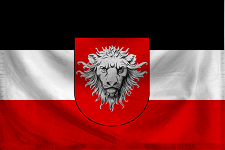

![]() by Freistaat-Ostafrika » Wed May 06, 2020 5:04 am
by Freistaat-Ostafrika » Wed May 06, 2020 5:04 am

![]() by Freistaat-Ostafrika » Wed May 06, 2020 7:23 am
by Freistaat-Ostafrika » Wed May 06, 2020 7:23 am

![]() by Freistaat-Ostafrika » Fri May 08, 2020 7:51 am
by Freistaat-Ostafrika » Fri May 08, 2020 7:51 am

![]() by Freistaat-Ostafrika » Sat May 16, 2020 2:00 pm
by Freistaat-Ostafrika » Sat May 16, 2020 2:00 pm

![]() by Freistaat-Ostafrika » Wed May 20, 2020 1:54 pm
by Freistaat-Ostafrika » Wed May 20, 2020 1:54 pm

![]() by Freistaat-Ostafrika » Sat Jun 06, 2020 12:18 pm
by Freistaat-Ostafrika » Sat Jun 06, 2020 12:18 pm

![]() by Freistaat-Ostafrika » Mon Jun 08, 2020 1:16 pm
by Freistaat-Ostafrika » Mon Jun 08, 2020 1:16 pm

![]() by Freistaat-Ostafrika » Mon Jun 22, 2020 8:20 am
by Freistaat-Ostafrika » Mon Jun 22, 2020 8:20 am

![]() by Freistaat-Ostafrika » Mon Jul 20, 2020 12:19 pm
by Freistaat-Ostafrika » Mon Jul 20, 2020 12:19 pm

![]() by Freistaat-Ostafrika » Mon Jul 27, 2020 2:34 pm
by Freistaat-Ostafrika » Mon Jul 27, 2020 2:34 pm

![]() by Freistaat-Ostafrika » Wed Jul 29, 2020 7:57 am
by Freistaat-Ostafrika » Wed Jul 29, 2020 7:57 am

![]() by Freistaat-Ostafrika » Sun Aug 16, 2020 11:58 am
by Freistaat-Ostafrika » Sun Aug 16, 2020 11:58 am

![]() by Freistaat-Ostafrika » Fri Aug 28, 2020 2:39 pm
by Freistaat-Ostafrika » Fri Aug 28, 2020 2:39 pm

![]() by Freistaat-Ostafrika » Sat Sep 05, 2020 7:33 am
by Freistaat-Ostafrika » Sat Sep 05, 2020 7:33 am

![]() by Freistaat-Ostafrika » Fri Sep 11, 2020 4:08 pm
by Freistaat-Ostafrika » Fri Sep 11, 2020 4:08 pm

![]() by Freistaat-Ostafrika » Sun Sep 13, 2020 8:34 am
by Freistaat-Ostafrika » Sun Sep 13, 2020 8:34 am

![]() by The Kingdom of Apilonia » Sun Sep 13, 2020 3:18 pm
by The Kingdom of Apilonia » Sun Sep 13, 2020 3:18 pm

![]() by Freistaat-Ostafrika » Fri Sep 18, 2020 2:09 pm
by Freistaat-Ostafrika » Fri Sep 18, 2020 2:09 pm

![]() by Freistaat-Ostafrika » Sat Sep 19, 2020 11:13 am
by Freistaat-Ostafrika » Sat Sep 19, 2020 11:13 am

![]() by Freistaat-Ostafrika » Sun Sep 20, 2020 11:09 am
by Freistaat-Ostafrika » Sun Sep 20, 2020 11:09 am

![]() by The Kingdom of Apilonia » Tue Sep 22, 2020 12:46 am
by The Kingdom of Apilonia » Tue Sep 22, 2020 12:46 am
Advertisement
Return to International Incidents
Advertisement